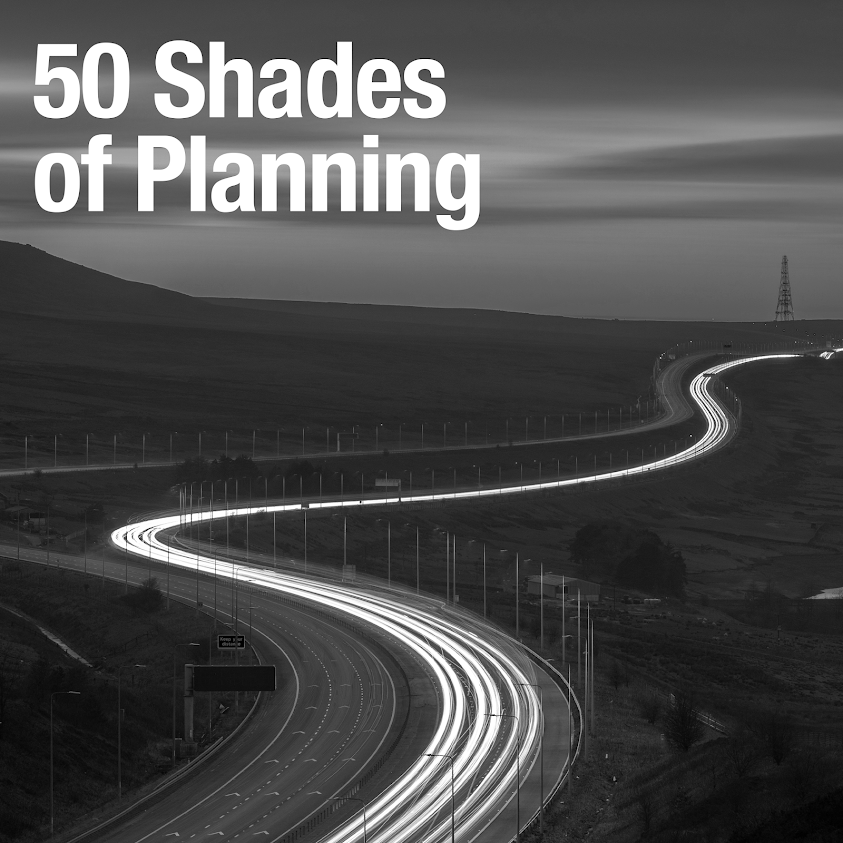We are in election season, which means that planning policies and pronouncements are more prone than usual to the pie charts of public opinion. It occurs to me, therefore, that planning is ripe for satirical send-up, so this blog, therefore, is meant for Armando Iannucci, who will hopefully
at some point in the future consider a fifth series of The Thick Of It, the razor-sharp,
foul-mouthed satire that pricks at the Westminster bubble.
If, and hopefully when, Mr Iannucci
does contemplate that new series, he will hopefully stumble across this piece
and my suggestion that Nicola Murray, the tragi-comic Minister whose sole ambition
in politics is to avoid the ire of tyrannical spin-doctor Malcolm Tucker, finds
her way from DoSAC to the new Department of Places and the Environment where
she has accepted the crucial role of Planning Minister.
To assist Mr Iannucci yet further, I have also taken the liberty
of sketching out a planning narrative for the series, around which political and personal plotlines can be based.
Episode 1.
In the warm glow of an election victory, Nicola Murray
begins to formulate the policies that will deliver the manifesto commitments on
housing and planning, which included a step-change in housing delivery, a faster,
fairer planning system, support for self-builders, and a commitment to put
communities at the heart of the decision-making.
Episode 2.
The publication of disappointing official statistics on
housebuilding means an early morning call to Nicola from Malcolm, who reminds
her of the Prime Minister’s own pre-election promise to ‘Get Britain Building. Nicola
agrees to work with Treasury officials on a temporary policy to expedite the
development of absolutely anything absolutely anywhere.
Episode 3.
The juxtaposition position between pledges to oversee both a
step-change in delivery and a revolution in local-decision making is brought
sharply in to focus for Nicola when a planning application is submitted for an
urban extension to the market town in which her constituency office is located.
Episode 4.
Having attended a public exhibition about the urban
extension, and heard about both the benefits of the scheme and the future
affordability crisis in her home town being precipitated by the failure of the
local authority to start reviewing it’s local plan, Nicola is minded to support
the application until Malcolm advises her that her local association will
refuse to match fund her pre-election leafleting campaign if she does.
Episode 5.
The need for Nicola to make a difficult decision on the
urban extension is averted when a well-informed residents group (that includes
a planning barrister that Malcolm went to University with) spots a flaw with the
application's EIA process, forcing it to be restarted. During the delay the residents
group is able to prepare the first draft of a neighbourhood plan that includes
the development of a smaller brownfield site within the town when the factory
currently on it finally closes.
Episode 6.
With another general election on the horizon, more
disappointing housebuilding statistics, and Malcolm calling for more manifesto
commitments around a step-change in housing delivery; a faster, fairer planning system; support for self-builders; and a commitment to put communities at the heart of the decision-making, Nicola
accepts an exciting role at the Department of Schools and Skills…
You keep the Bafta, Mr Iannucci. I'll settle for a co-writing credit...

Comments
Post a Comment